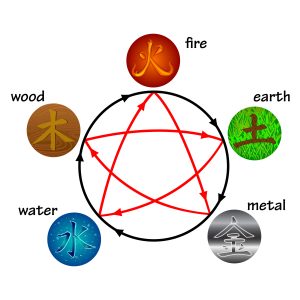TCM Prevention and Treatment of Gastropathy
Shanghai is experiencing a special and difficult time. Even so, we can still see that people have been creative with their supplies and cooked exquisite food and happily shared it on WeChat moments. However, some people can’t enjoy delicious food because of gastrointestinal symptoms. What are the reasons for such digestive problems? Does TCM have methods to prevent and treat them?
Factors causing digestive discomfort
- Improper diet: Overeating or not having breakfast or three meals a day properly timed. Eating too much meat or snacks, cold and raw or spicy sour food, pickled or fried food, out-of-season food, and food contaminated by pesticide or feces. Drinking too much alcohol, coffee, or strong tea.
- Imbalance in the body from cold due to not dressing warmly or low air conditioning temperature.
- Long-term chronic mental stress.
- Drug side effects from steroids, hormones, analgesics, anticoagulants, antibiotics, some bitter and cold Chinese herbal medicine, etc.
- Helicobacter pylori infection.
- Functional problems after resection of the stomach, gallbladder and other organs.
Why does gastropathy occur frequently in spring?
The climate in Shanghai changes rapidly in spring like a roller coaster. It’s cold and hot. Sometimes spring is colder than winter. People who take off their winter clothes too early are vulnerable to cold. Cold promotes the increase of gastric acid secretion, stimulates gastric mucosa and leads to gastric disease. As we know, some diseases like gastritis, gastroduodenal ulcer, upper gastrointestinal bleeding, and perforating happen more in spring.

Five elements, creation and destructive circles
According to the theory of the five elements of TCM, nature and humans correspond to each other, and the wood (liver and gallbladder) is vigorous in spring, which means the functions of the earth (spleen and stomach) can easily be inhibited.
On this basis, habits like overeating or eating less or sharp mental stress, etc. can more easily induce a series of gastrointestinal symptoms. Additionally, gastrointestinal symptoms are also the somatization of some mental diseases like anxiety or depression.
Common gastrointestinal symptoms:
- Abdominal distention, belching, passing wind
- Stomachache
- Nausea, vomiting, loss of appetite
- Acid reflux, epigastric burning sensation
- Diarrhea, constipation
- Vomiting blood, blood in stool
Possible related symptoms outside the digestive tract:
- Insomnia, headache and palpitation
- Fatigue, muscle stiffness and pain
- Feeling nervous, anxious, irritable and depressed
- Weight loss, anemia
Relationship between spleen and stomach and health
TCM believes that the spleen and stomach provide the material basis of the acquired constitution and the source of generating Qi and blood. The vigorous function of the spleen and stomach can make Qi and blood exuberant, the body function normally, and maintain a good state of health.
What is “nourishing the stomach”?
2000 years ago, the earliest medical classic, the Yellow Emperor’s Internal Classic Su Wen, recorded the dietary principle of “five grains for nourishment, five fruits for helping, five livestock for benefiting, five vegetables for enrichment, combined with the nature and taste of food, to replenish essence and Qi”.
The concept of “nourishing the stomach” was initially developed by referring to the five grains and cereals, such as rice, wheat, yellow rice, millet, and beans which provide essential nutrients and energy to sustain life activities and can nourish the Qi of the spleen and stomach.
In fact, it is the process of reducing or eliminating irritating factors to the gastrointestinal mucosa and promoting the repair of the gastrointestinal mucosa. Long-term clinical practice tells us that the recovery of gastric diseases depends 70 percent on nourishment and 30 percent on treatment.
It’s important to take care of the stomach to get back to good health!
- Try to eat small and frequent meals and avoid cold, spicy and irritating food.
- When you have a stomach attack, you can eat rice porridge, millet porridge, lotus root powder, egg custard and noodles in vegetable soup for a short period of time. In the long term, it is important to eat easily digestible, nutritious foods such as milk, eggs, fish, shrimp, minced meat and spinach to avoid nutritional imbalance.
- Keep warm.
- Quit smoking and drinking alcohol.
- Go to bed before 11 pm and ensure adequate sleep.
- Seek professional advice from your doctor if you have digestive symptoms possibly caused by medication or H. pylori infection. If you have continued digestive symptoms or they affect your daily life, seek a professional evaluation.
- Maintain an optimistic and positive attitude. For chronic mental stress, acupuncture, Chinese herbal medicine, or psychological counseling can be used to adjust the imbalance between mind and body.
- Exercise appropriately to enhance physical fitness.
Professional help available from TCM
- Advantages of acupuncture and moxibustion in treating stomach diseases:
- Quick effects in the early stages, stable effects in the long-term
- Two-way regulation
- Physical and mental healing
- No direct stimulation to the gastric mucosa
- Advantages of Chinese herbal medicine in treating stomach diseases:
- Adjusting functions of the viscera of the whole body, not only for the treatment of the stomach
- It has a pain-relieving effect but is not addictive.
- It has antibacterial and antiviral effects, but it will not produce bacterial resistance.
- Most Chinese medicinal materials come from plants, and some are also food, rich in nutrients, mild and non-irritating to gastric mucosa and contribute to the repair of the gastrointestinal mucosa.
![]()
Dr. Zheng Shu Hua offers TCM evaluation and treatments in the Downtown (Xintiandi) clinic. Click here to make an appointment with her.




